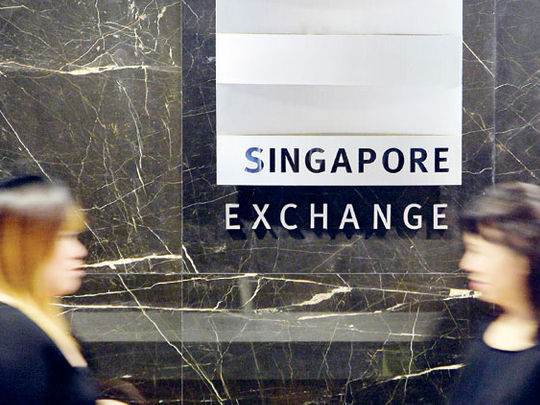
Singapore: Singapore Exchange, operator of the city's derivatives and securities exchange, is mulling the possibility of scrapping its midday trading break, Chief Executive Officer Magnus Bocker told reporters yesterday.
Eliminating the break could boost trading volumes by between 8 per cent to 10 per cent, Bocker said at a lunch organised by the Foreign Correspondents Association of Singapore. Discussions with stockbrokers are on-going, he said.
"I hope there will be a good acceptance of continuous trading," Bocker said. "We need to cater to a larger and broader international market."
The removal of the bourse's trading break — reported Thursday by the Today newspaper — will add Singapore to Australia, South Korea, the Philippines, India, Sri Lanka and Bangladesh to the list of Asia-Pacific markets that trade without an interval. Singapore's trading day runs from 9am to 12.30pm local time, followed by a 90 minute break and an afternoon session between 2 and 5pm.
The value of stock traded in Singapore daily on average in the past three months has tumbled 16 per cent from the same period a year earlier as Europe's debt crisis and China's steps to curb property prices fuelled concern that global economic growth will slow. That compares with a 17 per cent decline for Hong Kong, and a 29 per cent drop for Malaysia.
Removing the trading break won't boost trading volumes by much because the brokers and investors who trade in the market will remain the same, leaving demand for Singaporean equities little changed, according to Toshihiko Takamoto, a Singapore-based portfolio manager who helps oversee about $600 million in assets at Diam Co.
"It may attract private investors on their lunch break, but it would generate more volume if the exchange extends its trading hours past the current close to catch European investors," Takamoto said.
Bocker also said the bourse has a "good pipeline" of initial public offerings and that companies may list once market sentiment stabilises. The benchmark Straits Times Index is down 1.6 per cent from its high this year on April 14.












